The smallest of the rotary dryers are used to dry clothes; these small rotary dryers range in size, performance and efficiency. Slightly larger, higher capacity and higher efficiency rotary dryers are used on commercial and institutional scales by building maintenance staffs, college theatre costume departments and athletic departments. Read More…
Dürr CTS Inc. is a leading global supplier of environmental solutions and engineered products tailored to meet customers' industrial process requirements. We offer a complete portfolio of air pollution control technologies and drying and curing systems, including industrial dryers and ovens for roll-to-roll processes, web forming processes and conveyor handling of webs, as well as specialized...

At Akona Process Solutions, we are dedicated to engineering advanced industrial dryers that meet the rigorous demands of modern manufacturing and processing industries. We design and build drying systems that deliver precision, consistency, and efficiency, helping our clients achieve optimal production quality and throughput.

At ANDRITZ Separation Inc., we support industries around the world by delivering high-performance drying solutions that optimize efficiency, consistency, and product quality. We design and manufacture advanced dryers engineered to handle everything from fine chemical powders to food ingredients, minerals, and biomass, and we take pride in building systems that perform reliably under the most...

More Rotary Dryer Manufacturers
The largest industrial dryers can be large enough to take up entire rooms and process very large material volumes. Industrial rotary dryers are used for a wide range of applications in many industries. Large scale bakeries and other food processing operations often sell their waste food materials to farms for animal feed.
In many such cases, the feed must be dried before it can be packaged; rotary heaters are often used to dry bulk quantities of food waste in these situations. In other cases, waste products from manufacturing processes, preprocessed minerals and other materials are dried in rotary heaters before or after an industrial process.
Rotary dryers vary widely in terms of their sizes and configurations, but they all operate based on the same principle. In the smallest consumer clothes dryers, a rotating chamber is loaded with wet clothes. When the chamber is closed, a heating system, usually gas fired, heats air. That air is forced into the drying chamber and then vented through an outlet, removing moisture as it exits.
New, dry air is then forced into the drying chamber, and the cycle continues. As the process of air transfer carries itself out, the drying chamber, which is usually finned along its edges to catch clothing, spins around, exposing a greater amount of the clothing's surface area to the heated air. Industrial rotary dryers operate in the same way, but on a much larger scale.
In the most sensitive drying applications, industrial rotary dryers can use heated inert gasses instead of heated air to dry objects. Air is a main ingredient in many combustion reactions, and combining heat, air and combustible materials in a spinning enclosure is generally not advisable.




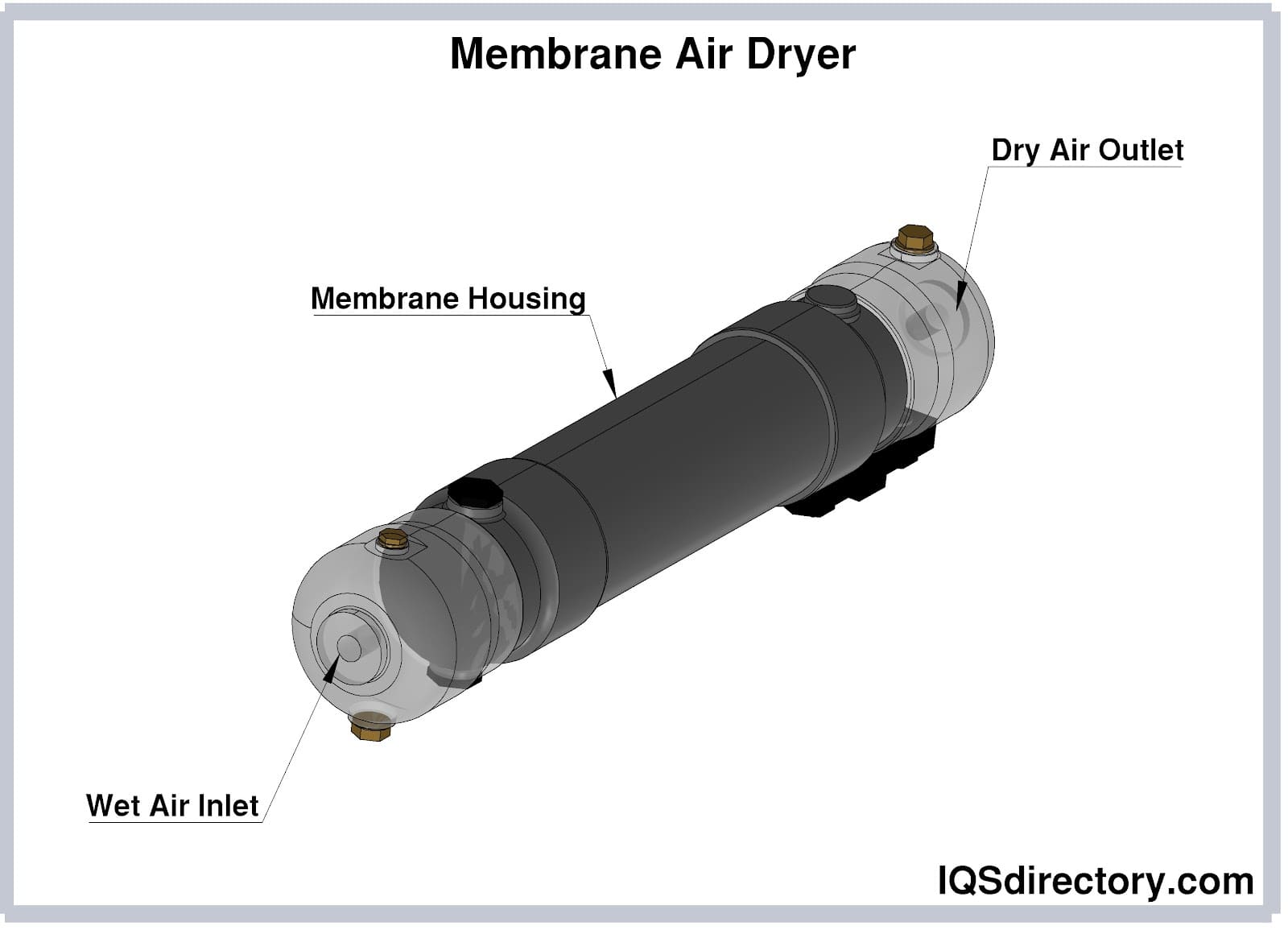
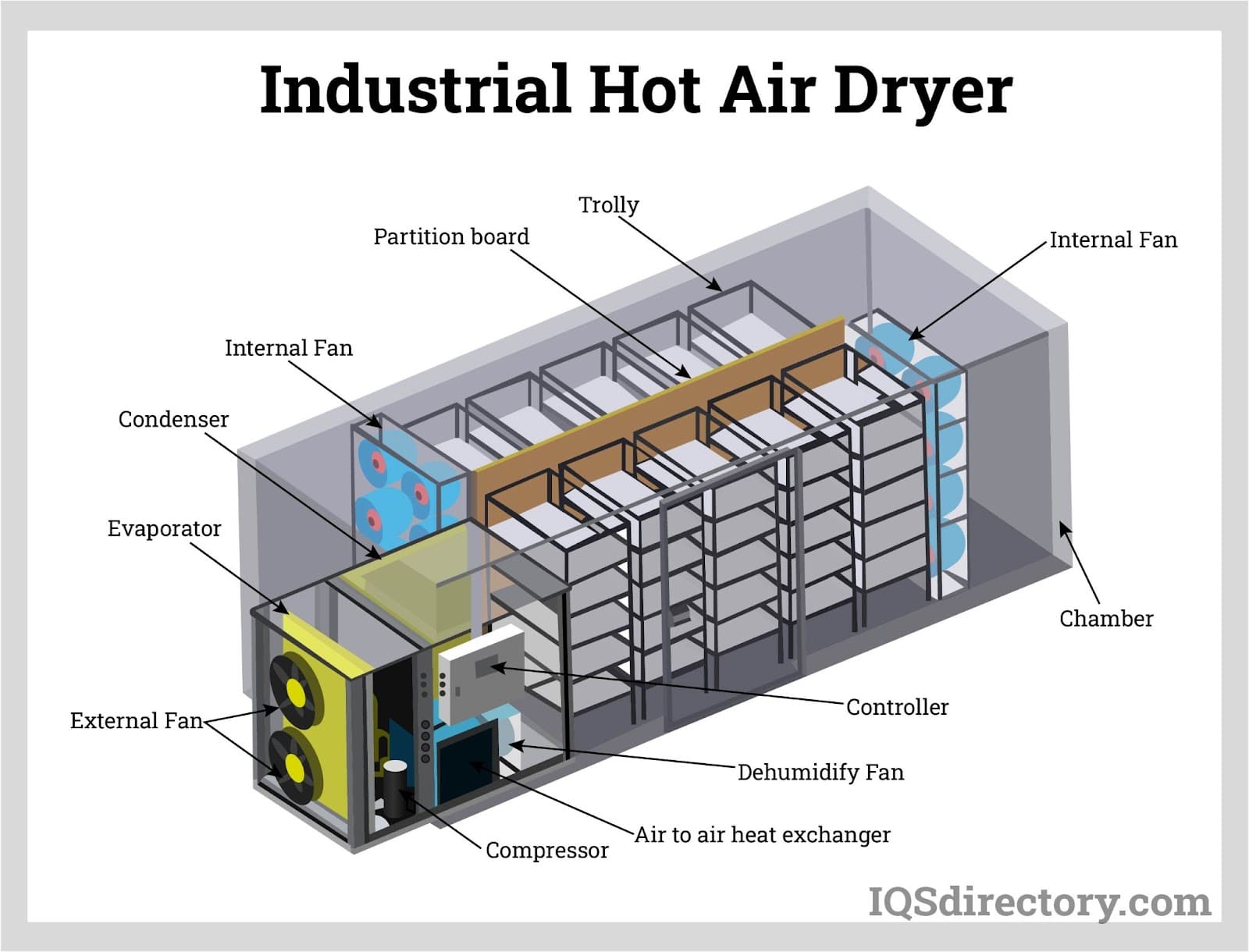
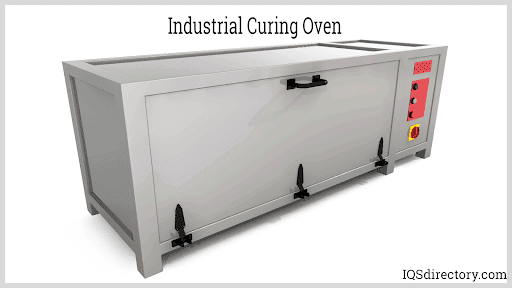
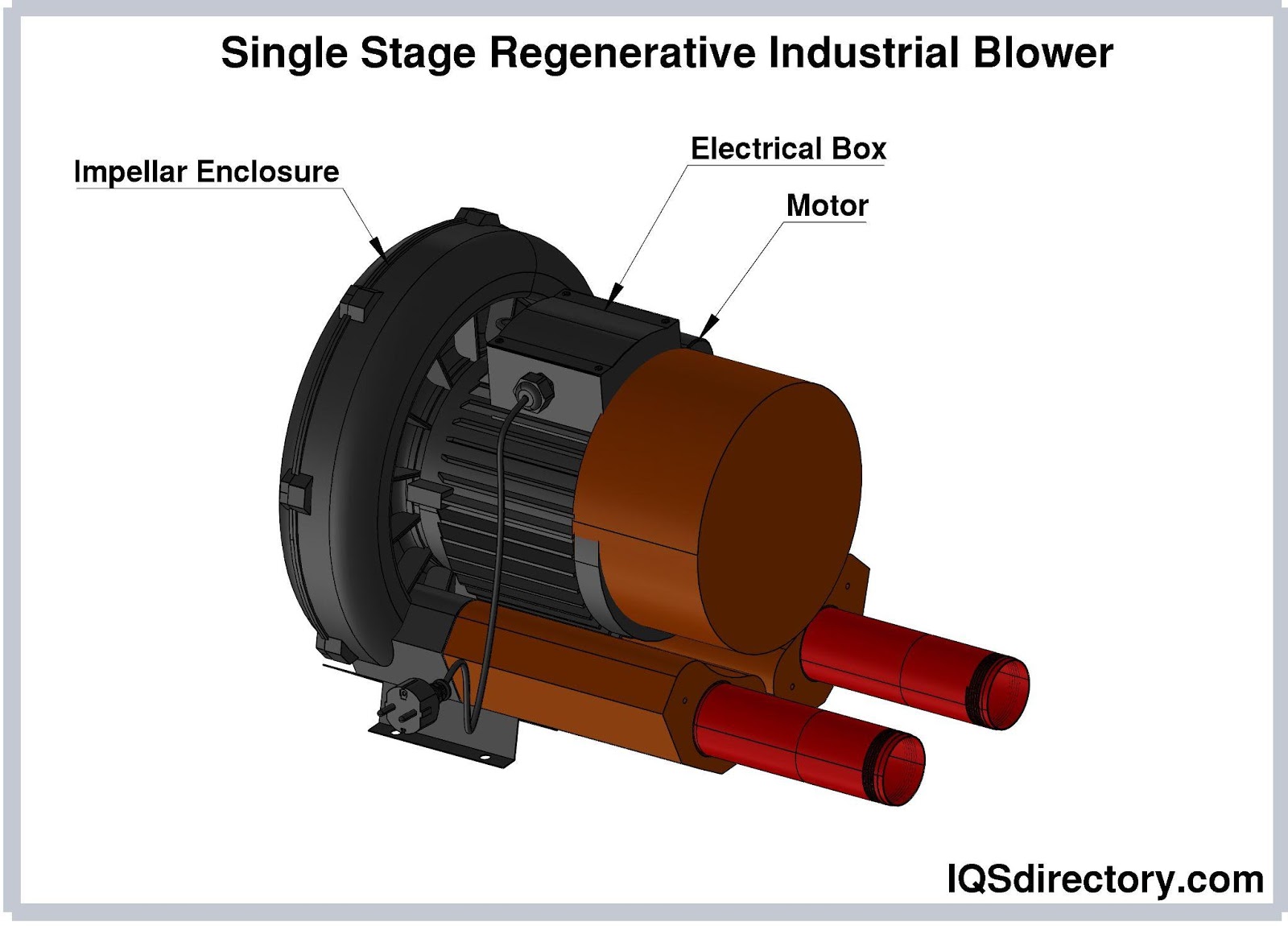
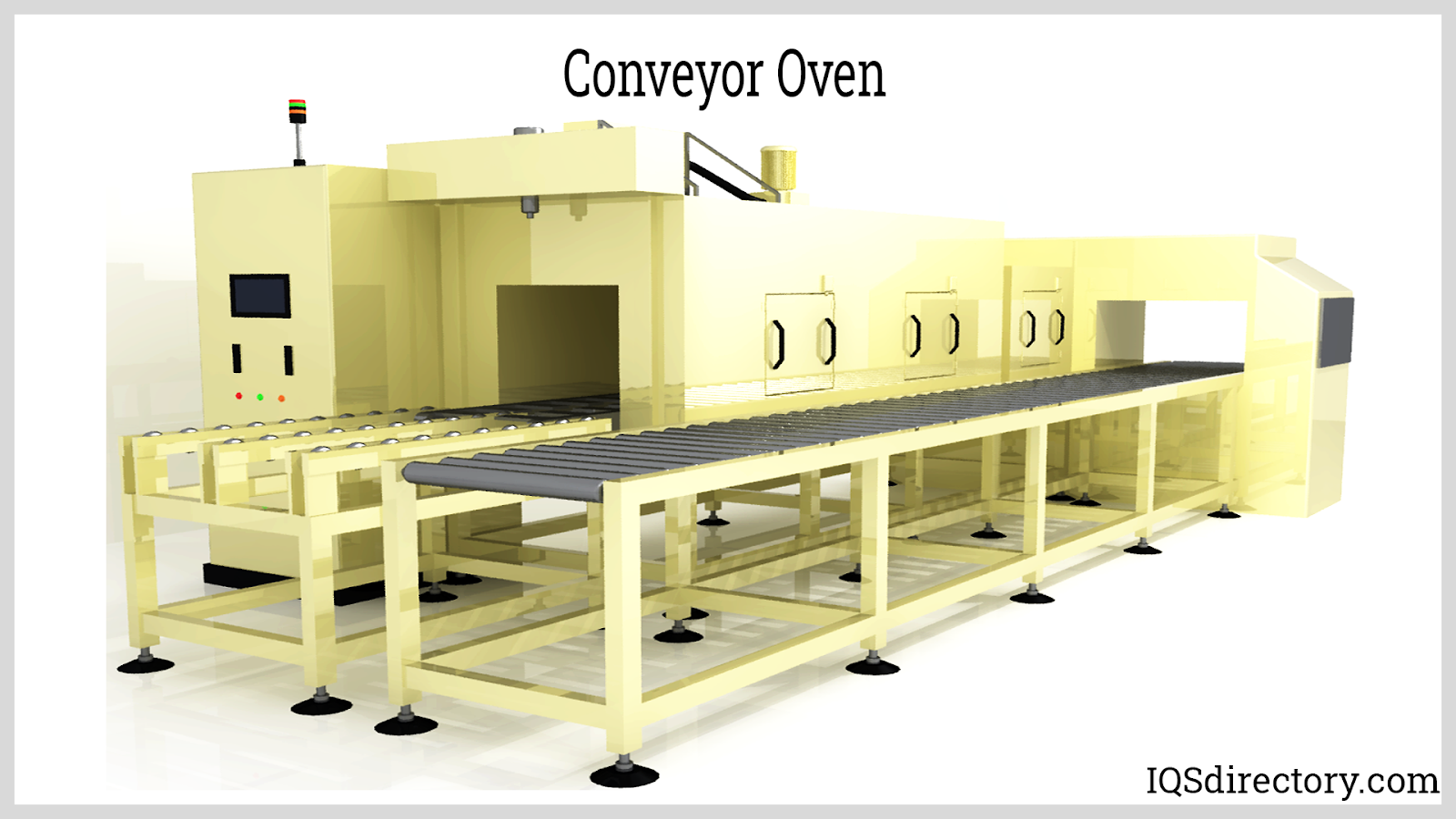
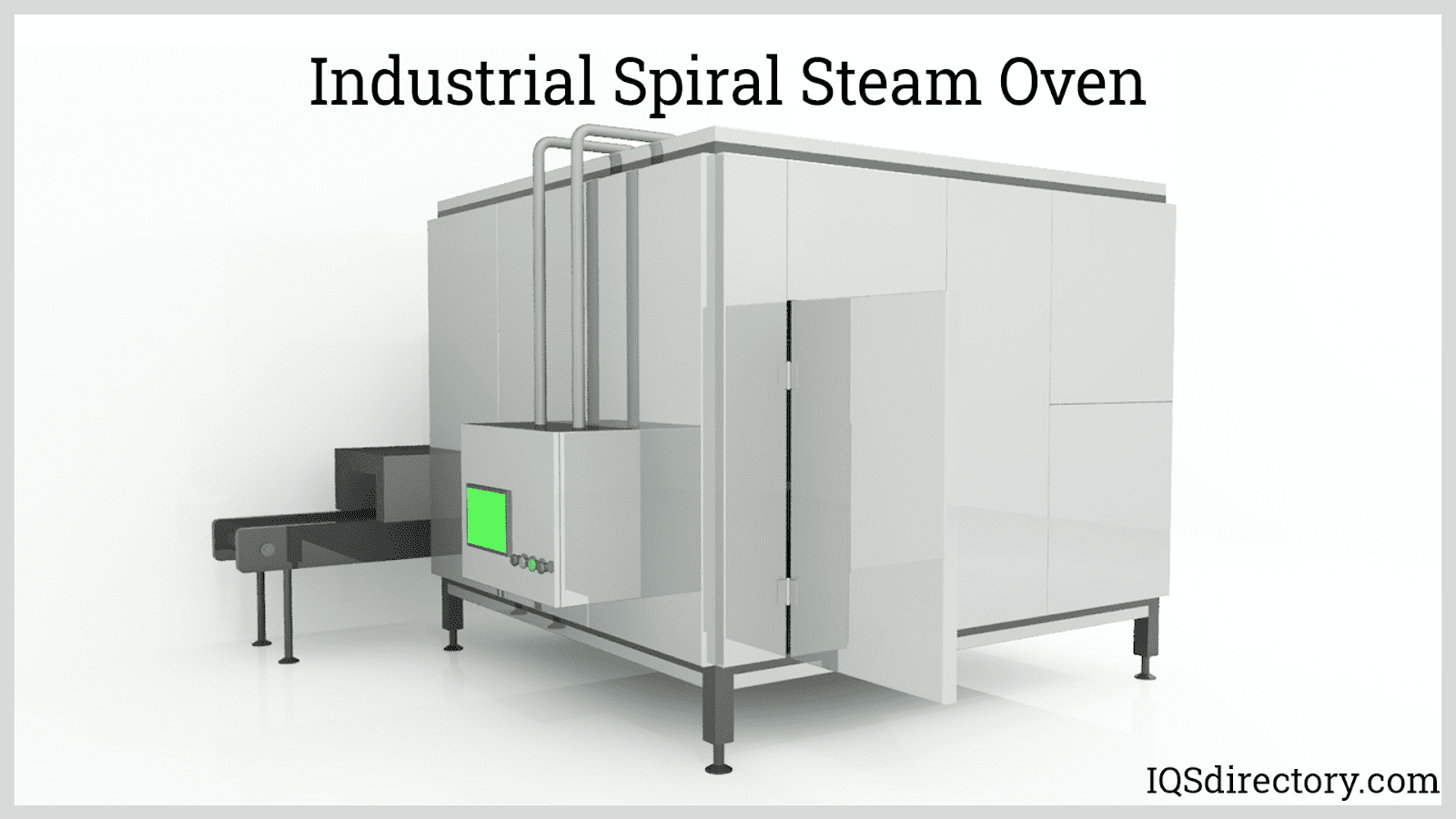
 Electric Heaters
Electric Heaters Industrial Dryers
Industrial Dryers Industrial Mixers
Industrial Mixers Industrial Ovens
Industrial Ovens Pressure Vessels
Pressure Vessels Pulverizers
Pulverizers Vibratory Feeders
Vibratory Feeders Castings & Forgings
Castings & Forgings Bulk Material Handling
Bulk Material Handling Electrical & Electronic Components
Electrical & Electronic Components Flow Instrumentation
Flow Instrumentation Hardware
Hardware Material Handling Equipment
Material Handling Equipment Metal Cutting Services
Metal Cutting Services Metal Forming Services
Metal Forming Services Metal Suppliers
Metal Suppliers Motion Control Products
Motion Control Products Plant & Facility Equipment
Plant & Facility Equipment Plant & Facility Supplies
Plant & Facility Supplies Plastic Molding Processes
Plastic Molding Processes Pumps & Valves
Pumps & Valves Recycling Equipment
Recycling Equipment Rubber Products & Services
Rubber Products & Services